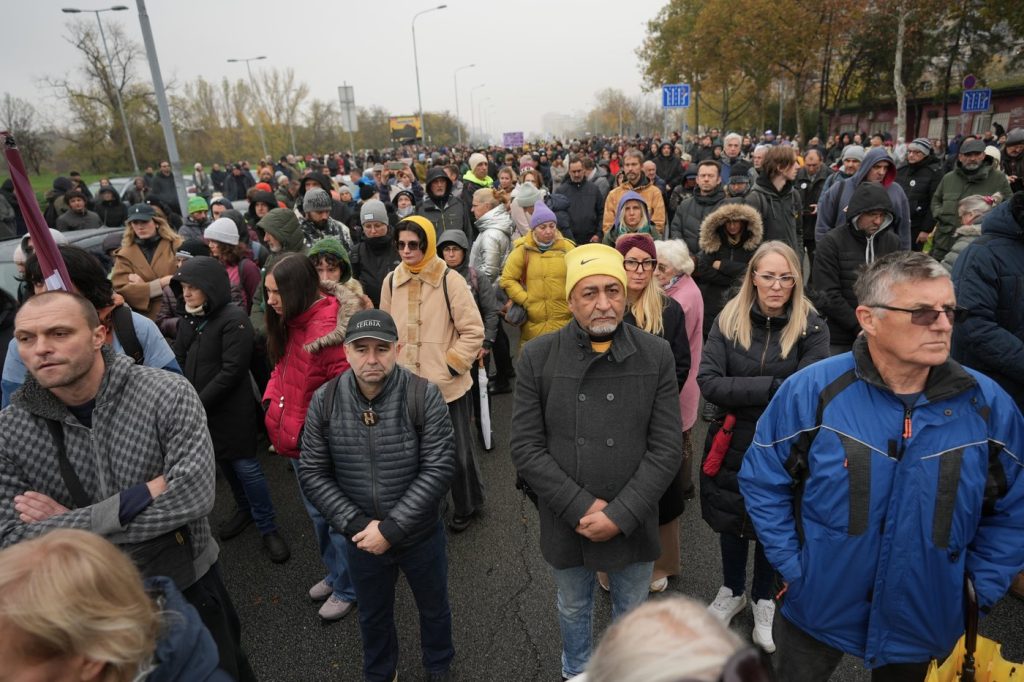BELGRADE, Serbia (AP) – On Saturday, several thousand people took to the streets of Belgrade, Serbia's capital, enduring cold weather and rain to protest against violence directed toward university students. This march commemorated the one-year anniversary of an attack on drama students by pro-government supporters during a protest last year, an event that has inspired a wave of nationwide demonstrations challenging the autocratic rule of President Aleksandar Vucic.
The protest coincided with the anniversary of the aforementioned attack, which prompted widespread outrage and demonstrations across the country. The escalation of protests last year was marked by blockades of faculty buildings and daily rallies that drew tens of thousands of participants. During Saturday’s march, participants were led by drummers, with the crowd vocalizing their discontent by blowing whistles and carrying large dummy heads that represented the pro-government assailants.
Protesters paused in front of Belgrade's main court building to demand accountability from Serbia's judicial system regarding the attacks on protesters. The march also passed a tent camp set up by Vucic's supporters, which has been perceived as a protective barrier outside the presidential building. The demonstration concluded in front of the headquarters of the public RTS broadcaster, which protesters accuse of biased reporting favoring the government.
The ongoing protests in Serbia began in response to a tragic incident on November 1, 2024, when a roof collapse at a train station in Novi Sad resulted in the deaths of 16 individuals. Protesters attributed the disaster to negligence driven by corruption in state-funded infrastructure projects, many of which involved Chinese investments. This mounting anger has fueled protests against Vucic's administration.
President Vucic has faced significant demands from the protesting university students to call early parliamentary elections. However, he has resisted these calls and instead intensified a crackdown on dissent, with police frequently using force to dismantle anti-government gatherings. As a consequence, many protesters have faced detention or lost their jobs for showing support for the movement.
Serbia is currently engaged in a formal process to join the European Union, although this has been complicated by Vucic's close ties to Russia and China. Additionally, critics have raised concerns about the erosion of democratic freedoms and rampant corruption within the country, which Vucic has consistently denied.











